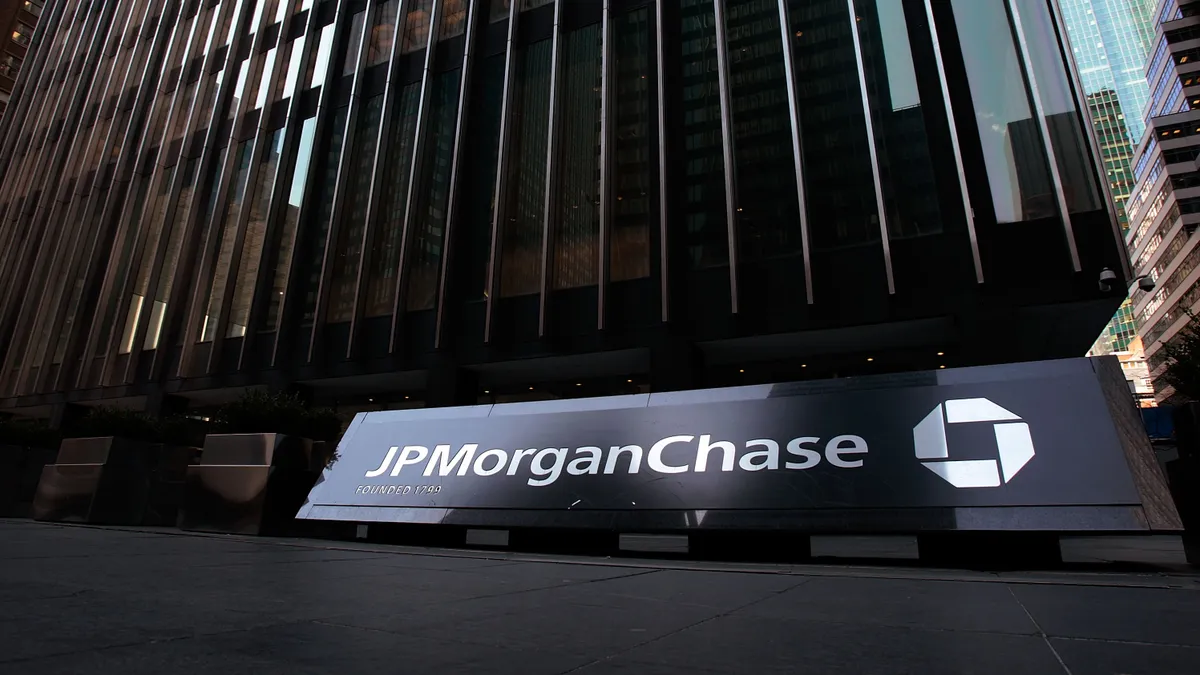Dive Brief:
- JPMorgan has maintained its status as the world’s most systemically important bank, according to the latest report by the Financial Stability Board (FSB) released Monday.
- The Basel Committee on Banking Supervision (BCBS) recommended that JPMorgan hold an additional 2.5% capital buffer — the reserves a bank keeps as a cushion to absorb the blow of a financial crisis. The bank already faces a 3.5% buffer under U.S. regulations.
- Citigroup and HSBC maintained their positions since last year at a 2% buffer while Bank of America moved up one rung on the scale from 1.5% and joined the group. BNP Paribas slipped one place and joined Deutsche Bank and Goldman Sachs at the 1.5% level this year, the report said.
Dive Insight:
The names of the 30 global systemically important banks (G-SIBs) of 2022 remain unchanged from last year. The list is based on data compiled by the end of 2021 and the revised assessment methodology published in July 2018, which is applied for the first time in 2022.
JPMorgan continues to rule the top category for each of the past five annual rankings except for 2020 when Citi and HSBC bagged the 2% buffer category along with it. Recognized as the bank with the most capital requirements, any instability at JPMorgan will have implications on the global financial system, according to the report.
The list of banks ranked at 1.5% mostly remains unchanged with Bank of China, Barclays, Industrial Commercial Bank of China, Deutsche Bank, Goldman Sachs, and Mitsubishi UFJ but Bank of America moved one step up in 2022, FSB report said.
The FSB’s annual rankings are calibrated across different sectors including the size of the bank, the scope of its cross-border transaction and its connection to other companies. This year, cross-border exposures within the European Banking Union (EBU) were considered in the creation of the ranking list, according to the report.
Bank of New York Mellon, Morgan Stanley, UBS and Wells Fargo all continue to maintain their status at a 1% revenue buffer, but China Construction Bank slid one place from 1.5% last year to join the group. The banks pegged at 1% are TD, Royal Bank of Canada, Credit Suisse, UBS, Santander, Standard Chartered, Societe Generale, Credit Agricole, Groupe BCPE, ING, UniCredit, Mizuho, Sumitomo Mitsui and the Agricultural Bank of China.
The changes in capital absorbency as per the FSB list will take effect on Jan. 1, 2024, the report noted.














